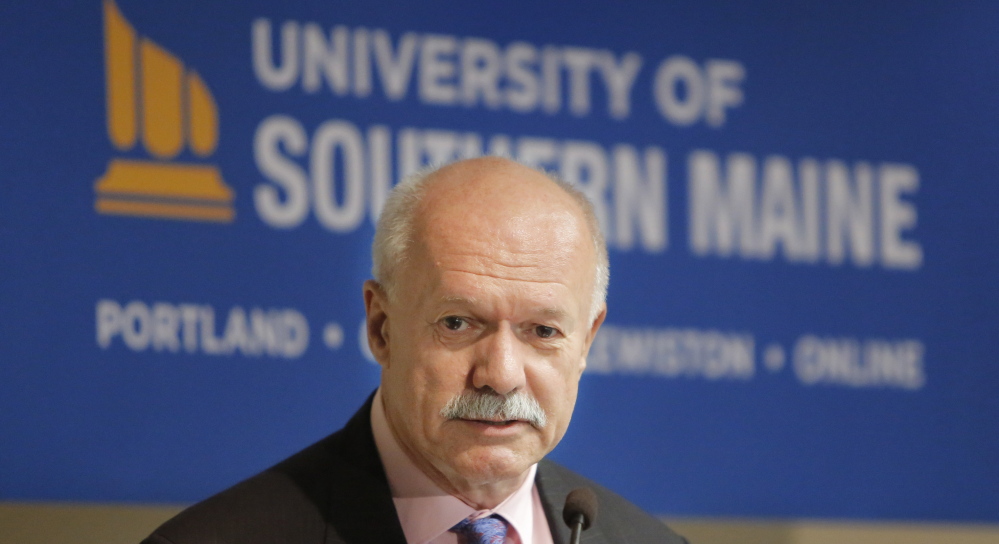David Flanagan has negotiated some big deals, managed some huge organizations and cleaned up after natural disasters.
But people will still tell you that none of that prepares him for running the University of Southern Maine.
On Wednesday, the former CEO of Central Maine Power Co. was named interim president of the troubled university, which has struggled through a string of leadership and budget failures that stretch back years through multiple administrations. Unlike his predecessors, Flanagan is not an academic, but no one should jump to the conclusion that he is unqualified for this job. His background in finance, management and politics may be more relevant than his scholarship credentials to an institution that desperately needs to find its way.
Flanagan is best known as a businessman, and some will read that to mean that he has been hired to downsize the university, limit its mission and make it more responsive to the needs of business. If you listen to remarks by Flanagan and University of Maine System Chancellor James Page, the skeptics appear to be at least partly right – but there’s more.
In addition to balancing the budget, which starts the year $12 million in the hole, Flanagan’s marching orders include resolving the conflicts among the university’s many interest groups and building stronger bonds between the school and the surrounding community.
Flanagan and Page could be paying lip service to those goals, but the skeptics should remember one thing: If the job of the interim president were to cut, and just to cut, then the system chancellor and board of trustees would not need to change leadership at USM. Former interim President Theo Kalikow could have stayed on for another year and fought with faculty and students to force through unpopular program cuts and layoffs.
The only reason to change presidents now is to fix the damage caused by harsh financial realities that need to be addressed if the institution is to succeed. The “transfer” of Kalikow and former Provost Michael Stevenson to positions in the university system office was an expensive and unspoken acknowledgment that USM did not have the right leaders in place to carry out the complex job that lies ahead.
Whether Flanagan can build those bridges remains to be seen. He makes no bones about his view on cutting programs. He is the author of a 2009 analysis of the UMaine System that calls for the system’s campuses to specialize and complement each other instead of competing.
He is blunt about the university’s need to respond to economic and demographic trends that result in enrolling fewer students who drop out more frequently and graduate less often than peers at other institutions.
But he is not promoting cuts alone as the key to prosperity. For instance, Flanagan promises to focus the revenue side of the budget and to look at recruitment and pricing strategies that would better support the university’s mission. And he has a higher profile and more credibility in Augusta and with the board of trustees than any of his recent predecessors, which could give the faculty and students a more powerful ally than they have had for some time.
It may be that given the time he has to work with and the economic constraints under which he will be operating, it will be impossible for Flanagan to effect major change in the university’s trajectory. The president of USM needs to be part salesman, part accountant, part politician and part visionary. Flanagan deserves a chance to try to fill those roles.
No one, either inside the university or around the state, wants to see another failed presidency at USM. The institution matters too much.
Send questions/comments to the editors.



Success. Please wait for the page to reload. If the page does not reload within 5 seconds, please refresh the page.
Enter your email and password to access comments.
Hi, to comment on stories you must . This profile is in addition to your subscription and website login.
Already have a commenting profile? .
Invalid username/password.
Please check your email to confirm and complete your registration.
Only subscribers are eligible to post comments. Please subscribe or login first for digital access. Here’s why.
Use the form below to reset your password. When you've submitted your account email, we will send an email with a reset code.